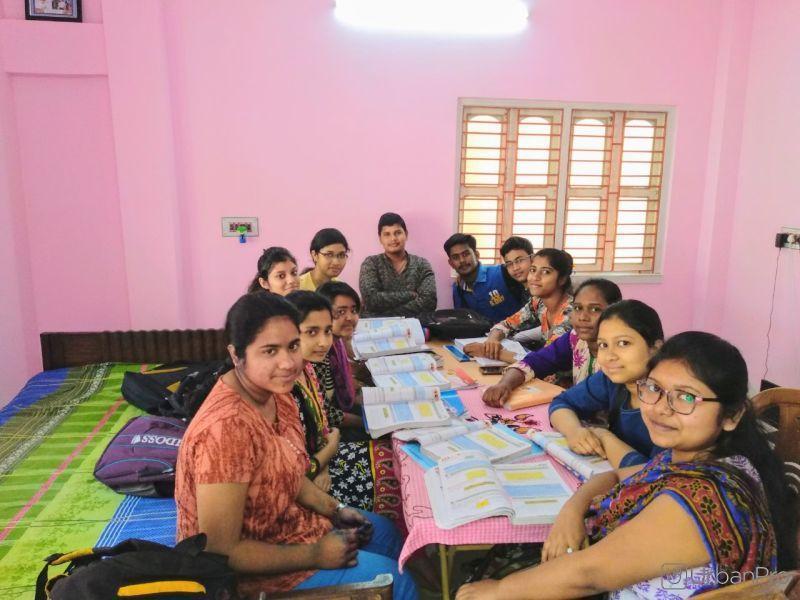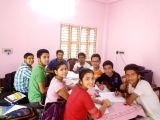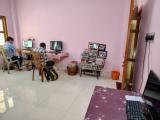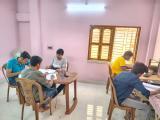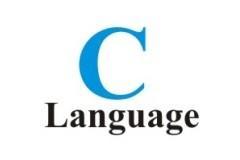Session-wise Syllabus:
Session 1: Programming Logic and Techniques (2 Hours Theory Only)
Introduction to Programming
Needs of Programming
Low-level Language
High Level Language
Compiler, Interpreter
Source code, Object code
Procedural Language
Object Oriented Programming
Algorithm
Expressing an Algorithm
Pseudocode
Flow Chart
Demonstrate the examples of Pseudocode and Flow Chart from PLT handout
C Programming
Session 2: Introduction to C Programming Language
History of â??Câ??
Describe â??Câ?? program structure
Sample program to display â??Hello Worldâ??
Data types, Constants, Variable & Keywords
Session 3: Operators
Arithmetic Operator and Expression
Hierarchy of arithmetic operations
â??printfâ?? statements with escape sequences ( \n, \t) and â??scanfâ?? statements
Pre and post increment operators
Session 4: Operators and Control Statements Contdâ?¦
Decision making with IF statement
Multiple statements within IF
Relational operators, logical operators
IF-ELSE statement
Session 5: Control Statements Contdâ?¦
Nested IF-ELSE
Switch-case with break
Session 6: Loop in â??Câ??
Concepts of Loop
While statement
Do while loops
For statement
Session 7: Loop in â??Câ?? continued
Multiple initializations in FOR loop
â??breakâ?? and â??continueâ?? statements
Nesting of loops
Session 8: I/O statements revisited
I/O revisited with several escape sequences
Formatted I/O using format specifications strings with examples getchar(), putchar()
Session 9: Array in â??Câ??
Concept of array
Array declaration, initialization & Accessing Array Elements
Session 10: Array in â??Câ?? continued
Two-dimensional array declaration, initialization, manipulation
Concept of string (character array)
Declaring and initializing string variables
Reading strings from terminal
Writing string to screen
Session 11: Pointer in â??Câ??
Introduction to pointer
Declaration, Initialization
Accessing address of a variable
Accessing variable through its pointer
Session 12: Pointer in â??Câ?? continued
Dynamic memory allocation with pointers (malloc, calloc )
Pointer arithmetic
Comparison between Array and Pointer
Session 13: Pointer in â??Câ?? continued
Using array and Pointer interchangeably
Manipulation of 2 dimensional array using pointer
Session 14: Function
Function: Need of functions
Declaring functions prototype
Defining a function
Calling a function - Without arguments
Scope of variables (Local, Global)
Use of â??externâ??
Session 15: Function Continued
Calling a function - With arguments
Call by value
Call by reference
Session 16: Function Continued
Passing array to functions
Functions returning values
Functions returning address
Session 17: String Revisited
String Manipulation functions (strcpy, strlen, strcat, gets, puts etc.)
User Defined String Manipulation Functions
Session 18: Structure
Defining a structure
Accessing structure elements
Uses of structure
Type casting
Structure within structure
Session 19: Structure Continued
Array of structure
Pointer to a structure
Passing structures to functions
Session 20: Structure Continued
Introduction to Data Structure
Programming Linked Lists
Session 21: Unions and other User Defined Data types
Unions
Enum
Typedef
Macro and preprocessor directives
Session 22: File Handling in â??Câ??
File Handling using â??Câ??
Defining, Opening and Closing a files
Concepts of file pointer, fopen, fclose, feof
Input/Output operation of files using putc, getc
Session 23: File handling in â??Câ?? continued
Input/Output operation of files using fprintf, fscanf
Command line arguments - argc, argv
Session 24: File Handling in â??Câ?? contuinued
Block reading and block writing: fread, fwrite, fseek, feof etc.



